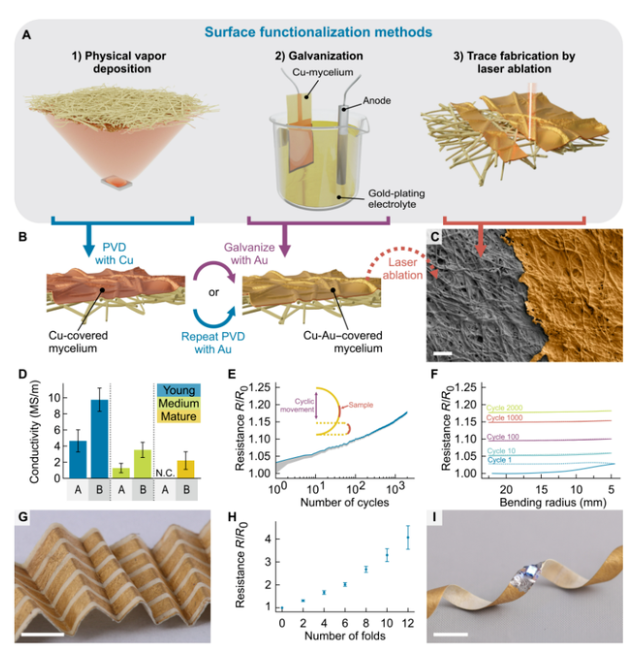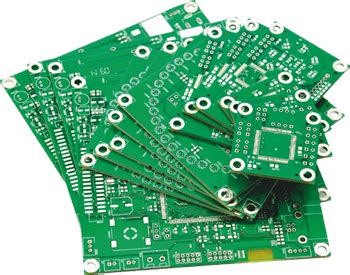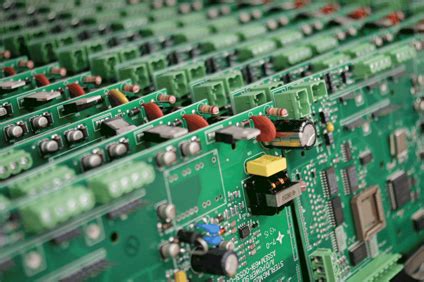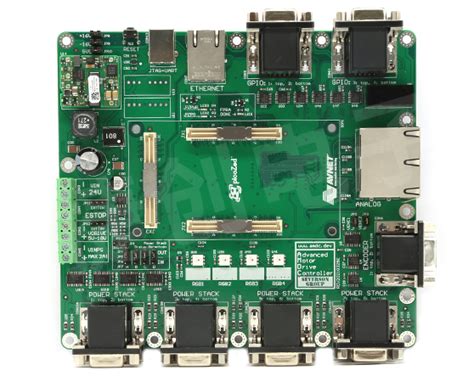Maximizing Efficiency with Turnkey Assembly Services

Key Takeaways
Turnkey assembly services represent a comprehensive solution for manufacturers seeking to streamline their production processes. One of the primary advantages of these services is their ability to significantly enhance efficiency. By outsourcing assembly tasks, companies can focus more on their core competencies, allowing for optimized timelines and improved output quality. The use of pcb assembly or PCBA through these services not only reduces labor costs but also minimizes the need for investment in extensive assembly equipment and infrastructure.
“Outsourcing assembly tasks can lead to a more agile manufacturing process, enabling quicker responses to market demands.”
Furthermore, these services facilitate access to advanced technologies and skilled labor that might otherwise be difficult or costly to acquire internally. As industries evolve, the ability to adapt and implement turnkey solutions becomes crucial for sustained competitiveness. Therefore, it’s essential to evaluate key factors such as reliability, service offerings, and cost when selecting a turnkey provider. Embracing this approach can lead to notable improvements in both efficiency and productivity, paving the way for long-term success in a rapidly changing landscape.

Understanding Turnkey Assembly Services: A Comprehensive Overview
Turnkey assembly services represent a pivotal aspect of modern manufacturing, particularly for industries requiring pcb assembly and pcba (printed circuit board assembly). These services simplify the production chain, providing a seamless solution by integrating all necessary steps—from design to final assembly. By partnering with specialized providers, companies can leverage their expertise to not only ensure high-quality outcomes but also enhance operational efficiency.
The essence of turnkey solutions lies in their all-encompassing nature; customers can manage less while achieving more. For instance, they typically cover sourcing materials, component placement, soldering, and even testing in one cohesive service package. This integration eliminates the need for multiple vendors and reduces the complexities associated with traditional assembly methodologies.
To better understand the impact of turnkey assembly services, consider the following table outlining key attributes:
| Attribute | Description |
|---|---|
| Comprehensive Solutions | Covers all aspects of production from sourcing to testing |
| Cost Efficiency | Reduces overhead costs associated with multiple suppliers |
| Quality Assurance | Ensures standardized processes for higher quality |
| Scalability | Easily adjustable based on production demands |
By adopting these services, businesses can enhance their focus on core competencies while entrusting assembly tasks to experts in pcb assembly, resulting in improved productivity and responsiveness to market changes. The trend towards outsourcing such tasks highlights not only a strategic move but also a pathway to achieving greater efficiency and competitiveness in an evolving landscape.

The Benefits of Outsourcing Assembly Tasks
Outsourcing assembly tasks, particularly in areas such as pcb assembly and pcba, presents significant advantages for companies aiming to enhance their operational efficiency. By leveraging turnkey assembly services, businesses can reduce the burden of in-house manufacturing processes and focus more on their core competencies. The flexibility that comes with outsourcing allows for quick scalability; as demand fluctuates, organizations can easily adjust their production levels without the overhead costs associated with maintaining a full-scale assembly operation.
Moreover, outsourcing enable companies to tap into specialized expertise. Providers of turnkey solutions often have advanced knowledge and technologies that can improve the quality of pcb assembly and streamline production lines. This access to specialized talent can foster innovation and elevate product standards, ultimately leading to a competitive edge in the market.
Additionally, cost efficiency is a paramount benefit of outsourcing. By utilizing external partners for tasks such as pcba, firms can diminish labor costs, reduce wastage with optimized production processes, and capitalize on the economies of scale achieved by established providers. This financial relief allows businesses to reallocate resources toward growth initiatives or other critical areas, thus enhancing overall productivity.
In essence, integrating outsourcing as part of an operational strategy not only fosters efficiency but also positions companies to navigate market changes swiftly while maintaining high quality in their products.
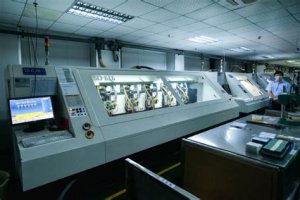
Streamlining Production Processes for Improved Efficiency
Turnkey assembly services have gained substantial traction in modern manufacturing, particularly in facilitating the assembly of complex pcba (printed circuit board assembly) solutions. By integrating various components and processes under one umbrella, these services allow businesses to streamline their production workflows significantly. They eliminate the need for multiple vendors and reduce the complexities often involved in managing different supply chains. With a focus on pcb assembly, companies can benefit from short lead times and enhanced coordination across stages of production. This centralized approach leads to improved quality control as all processes are closely monitored, ensuring that standards are met consistently. Consequently, businesses can redirect their resources towards core activities while relying on expert partners to manage their assembly needs efficiently. By outsourcing these tasks, they can not only achieve cost savings but also foster innovation, enabling them to respond swiftly to market demands without compromising on quality or efficiency.
Cost Reduction Strategies through Turnkey Solutions
In today’s highly competitive market, companies are constantly searching for methods to reduce expenses while maintaining quality output. Turnkey assembly services offer a compelling solution for organizations looking to optimize their production processes. By outsourcing assembly tasks such as pcb assembly or pcba, businesses can significantly lower overhead costs associated with labor, equipment, and facilities. This shift allows them to allocate resources more effectively, focusing on core competencies and strategic initiatives rather than managing every aspect of the assembly process. Furthermore, partnering with experienced turnkey service providers can lead to economies of scale that reduce per-unit costs, as these companies often have established relationships with suppliers and a wealth of industry knowledge that can improve sourcing efficiency. Additionally, the flexibility afforded by outsourcing allows businesses to respond more dynamically to market demands, increasing their production capabilities without the heavy financial burden of investing in additional infrastructure. Ultimately, leveraging turnkey solutions not only cuts costs but also enhances operational efficiency and contributes to a stronger bottom line through smarter resource management.
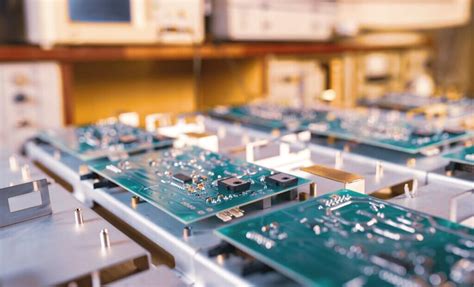
Enhancing Productivity: The Role of Turnkey Assembly Services
Turnkey assembly services have emerged as a pivotal component in manufacturing, particularly in sectors that require pcb assembly and pcba processes. These services offer a comprehensive solution that not only streamlines production but also enhances operational efficiency. By outsourcing assembly tasks to specialized providers, businesses can focus on their core competencies while benefiting from reduced lead times and improved quality control.
The integration of turnkey solutions into production workflows allows for a more cohesive approach to assembly. These services often come with advanced technology and specialized skills that can handle complex components, ensuring that each stage of the process is executed flawlessly. With emphasis on efficiency, turnkey providers leverage their expertise to minimize waste and optimize the use of resources. This results in not only cost savings but also a significant boost in overall productivity, allowing companies to meet market demands more swiftly.
Furthermore, the flexibility offered by turnkey assembly services enables businesses to adapt quickly to changes in demand or design specifications without the need for extensive internal adjustments. This scalability is particularly beneficial when dealing with products that require rapid iterations or customization. By enhancing productivity through strategic outsourcing, companies can effectively navigate the complexities of modern manufacturing while maintaining high standards for quality and performance.
Key Factors to Consider When Choosing a Turnkey Provider
When selecting a turnkey assembly provider, several critical factors come into play that can significantly influence your decision. The reputation and reliability of the provider are paramount; a proven track record in delivering quality pcb assembly services ensures that you are partnering with a vendor who understands the complexities of production processes. Moreover, it is essential to evaluate the provider’s expertise in pcba (Printed Circuit Board Assembly), as specialization in this area can lead to improved outcomes in terms of both efficiency and quality. Additionally, consider the flexibility offered by the provider in scaling operations up or down based on current market demands; this adaptability is vital for optimizing resources. An assessment of their technological capabilities is also crucial; advanced machinery and quality control measures implemented by the provider can significantly enhance production standards. Lastly, transparent communication channels and customer support play an integral role in fostering a successful partnership, facilitating smoother collaboration and problem resolution throughout the project lifecycle. Hence, taking these aspects into account will help ensure you choose a turnkey partner that aligns with your operational goals and enhances your overall productivity.
Case Studies: Successful Implementation of Turnkey Assembly Services
The real-world impact of turnkey assembly services can be observed through various case studies that highlight their effectiveness in different industries. For instance, a leading electronics manufacturer faced significant challenges in throughput and production costs due to inefficient assembly processes. By partnering with a turnkey provider, they implemented an optimized pcb assembly line that allowed for integrated services from design to production. This transition not only reduced manufacturing lead times by nearly 30% but also cut costs associated with labor and assembly errors, resulting in a more streamlined operation. Another case involved a consumer goods company that decided to outsource its pcba needs. This strategy helped them focus on their core competencies while leveraging the specialized skills of the turnkey provider. The outcome was a 25% increase in overall productivity and more flexible scaling options during peak seasons, demonstrating the tangible benefits of outsourcing assembly tasks. Collectively, these examples illustrate how embracing turnkey assembly services can lead to substantial improvements in efficiency, cost reduction, and enhanced productivity across various sectors.
Future Trends in Turnkey Assembly Solutions
As the manufacturing landscape continues to evolve, the future of turnkey assembly services is becoming increasingly dynamic and innovative. In particular, we are witnessing a growing emphasis on automation and advanced technologies that optimize processes related to pcb assembly and pcba. One notable trend is the integration of smart technologies, such as IoT (Internet of Things) devices, which enable real-time monitoring and data analytics during the assembly process. This shift allows organizations to gather insights that can lead to enhanced decision-making and improved efficiency. Moreover, sustainability is taking a front seat as companies seek out turnkey solutions that not only minimize waste but also utilize eco-friendly materials in their assembly tasks. As competition intensifies, many businesses are recognizing that outsourcing pcba tasks to experienced providers can lead to significant time savings and cost reductions. In essence, the ongoing advancements in turnkey assembly services are set to redefine production paradigms, promoting a model where agility and responsiveness are paramount in meeting market demands while maintaining high standards of quality.
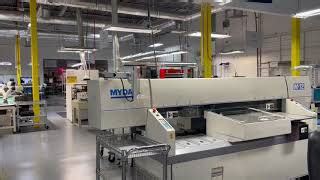
Conclusion
In summary, turnkey assembly services represent a transformative approach to production that offers numerous advantages, particularly for businesses focused on maximizing efficiency. By engaging pcb assembly and pcba solutions, organizations can leverage specialized expertise and streamline their operations. Outsourcing assembly tasks not only minimizes the burden on internal resources but also leads to substantial cost reductions, enabling businesses to allocate funds more effectively. As highlighted throughout this article, the integration of turnkey solutions is instrumental in fostering a competitive edge within the marketplace. Companies that choose to embrace these services can expect enhanced productivity levels, as well as a nimble response to evolving market demands. Ultimately, the decision to utilize turnkey assembly services positions businesses for long-term success through optimized production processes and improved operational efficiency.
FAQs
What are turnkey assembly services?
Turnkey assembly services refer to comprehensive solutions provided by specialized companies that handle all aspects of the assembly process—from design to final product. These services include pcb assembly and packaging, enabling businesses to focus on their core competencies without getting bogged down by the complexities of production.
How do turnkey assembly services improve efficiency?
By outsourcing assembly tasks, companies can streamline their production processes. Turnkey solutions help minimize downtime and reduce logistical challenges. Additionally, with expertise in pcba, these providers can deliver quicker turnaround times, thus enhancing overall operational efficiency.
What are the cost benefits associated with turnkey solutions?
Outsourcing assembly reduces overhead costs related to labor, equipment, and materials. Moreover, with access to specialized tools and resources that turnkey providers offer, businesses can achieve considerable savings on production runs without compromising quality.
Why should I consider outsourcing my PCB assembly tasks?
Outsourcing pcb assembly allows businesses to leverage external expertise while concentrating on strategic growth areas. This partnership may lead to higher quality outputs and improved speed-to-market—essential factors in today’s competitive landscapes.
Are there any risks involved with turnkey assembly services?
While there are numerous advantages, it is crucial to choose a reputable provider. Potential risks include miscommunication regarding specifications or delays in production schedules. Therefore, conducting thorough research is essential before selecting a turnkey provider, ensuring alignment in project expectations.



